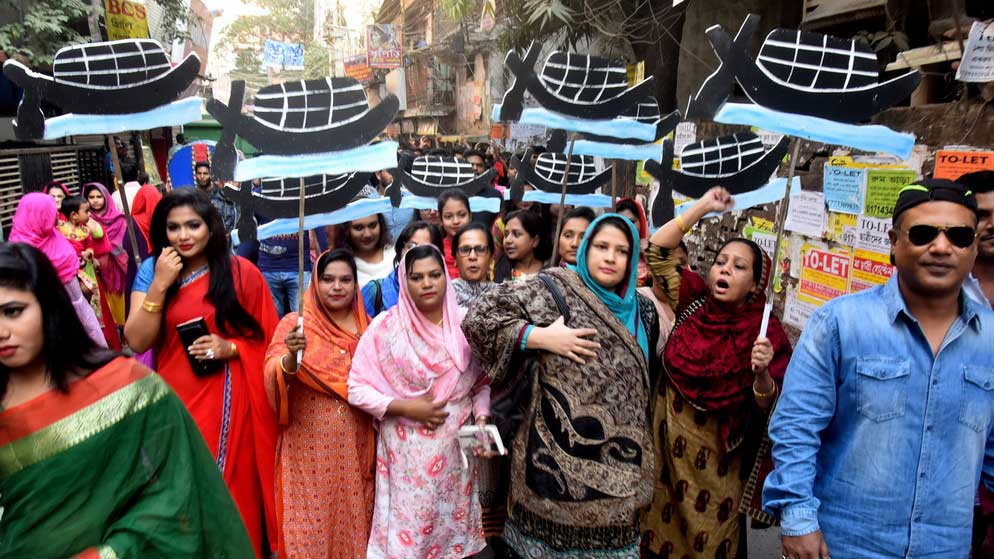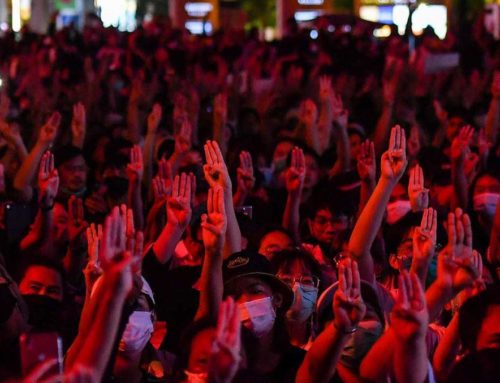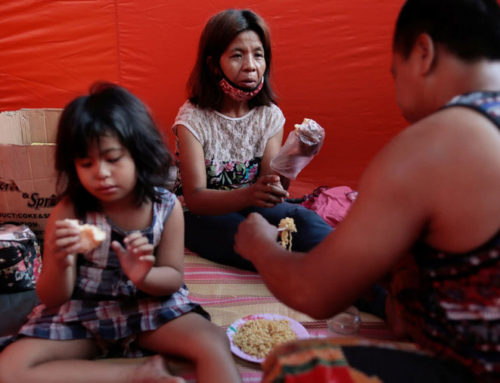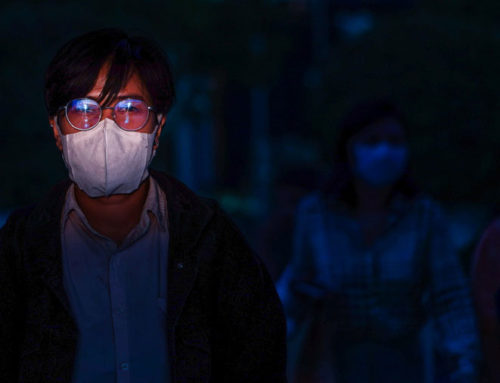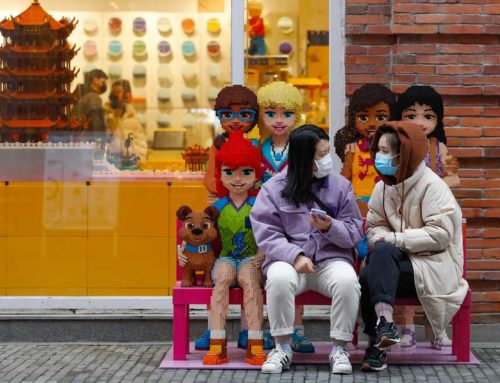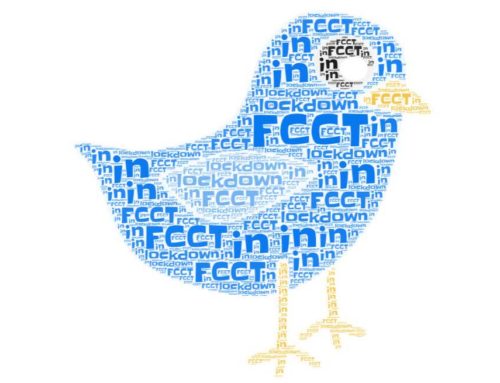Bangladeshi voters wary of ruling party despite economic growth
Critics of Prime Minister Hasina say little chance that polls will be fair{1st Photo Caption: Supporters of Bangladesh’s ruling Awami League take part in an election campaign in Dhaka on Dec. 10. © Getty Images}
COVER STORY
Bangladeshi voters wary of ruling party despite economic growth
Critics of Prime Minister Hasina say little chance that polls will be fair
DECEMBER 19, 2018 13:09 JST
DHAKA — A government that has presided over remarkable economic growth should, in normal circumstances, enjoy broad support. But public protests and political violence have surged ahead of Bangladesh’s national elections on Dec. 30, when Prime Minister Sheikh Hasina and her ruling Awami League will stand for a third consecutive five-year term.
The prime minister’s opponents — a disparate coalition led by Kamal Hossain, a former family friend and Awami League minister — say Hasina’s iron grip on power will prevent a fair election. Daily reports of arbitrary detentions and physical attacks on opposition members suggest the ruling party is utilizing its political machinery and control of security forces. The media, though partially muzzled by a tough new digital security law, seem emboldened by the rising political temperature.
Elections in Bangladesh are typically marked by violence, regardless of which party has the upper hand. Hundreds were killed in the 2014 polls, when the opposition Bangladesh Nationalist Party boycotted over the government’s refusal to appoint an interim caretaker administration.
This time, what began as a relatively peaceful campaign period has grown more violent as the polling date approaches. While opinion surveys have heavily favored the ruling party, critics argue that such results say more about political intimidation than the government’s popularity.
Yet, while known for her hard line approach to extremism and political dissent, Hasina has also introduced policies that have lifted millions out of poverty, empowered women and increased access to electricity, education and welfare. She has also drawn international accolades for sheltering more than 750,000 Rohingya refugees fleeing persecution in neighboring Myanmar.
In some countries, a refugee influx on this scale would bring down an incumbent leader, but the opposition has been largely silent on the Rohingya crisis. “We all know from our own exodus in 1971 [when nearly 10 million Bangladeshis fled to India] how it feels to leave one’s home due to violence,” Hasina said.
She has experienced tragedy first hand. Her father Sheikh Mujibur Rahman, the first president of independent Bangladesh, and most of her family were murdered by army personnel in 1975 when she was abroad. In 2004 she survived a grenade attack that killed 24 supporters. Critics say these experiences drive a sometimes vindictive attitude toward those she considers traitors.
In an interview with the Nikkei Asian Review at her official residence in Dhaka in December, Hasina spoke little of the election, focusing instead on economic and social issues. While she occasionally spoke in the conditional — “If I am re-elected …” — she exuded the assurance of a leader with victory in her sights.
The economy’s stellar performance under Hasina has left the opposition struggling to come up with cohesive economic policies of its own. The main thrust of its manifesto is to attack official corruption and red tape, and pledge to deliver 11% growth (against Hasina’s goal of 10%), with little detail on implementation.
Hasina has urged people to vote for Awami League to “maintain the country’s course of development.” But in conversation, some Bangladeshis argue that while things were “10 times worse” under the BNP government from 2001 to 2006, it is time for a change.
Members of the opposition, who range from those on the far left to the far right, insist that growth has come in spite of, not because of, the government’s policies.
Among them is Hossain, a respected constitutional lawyer, who stepped in to lead the coalition.
“We have seen strong growth, but it is a mistake to credit the government,” he said. “Economic success is the result of many factors, including above all, the efforts of our people.”
“I believe that people want change, and if the election is minimally free and fair the opposition could win,” Hossain added. “My decision to set up a coalition was to provide people an option to bring about change through election.”
Source Link: NIKKEI ASIAN REVIEW
Related Articles:
The rise and rise of Bangladesh – NIKKEI ASIAN REVIEW
COVER STORY – Main story
The rise and rise of Bangladesh
The economy is booming. Does Sheikh Hasina deserve the credit?
Sheikh Hasina, Bangladesh’s PM, in her own words – Nikkei Asian Review
COVER STORY – Excerpts from interview
Sheikh Hasina, Bangladesh’s PM, in her own words

